What is The ABC of It?
The ABC of It: Why Children’s Books Matter is a physical exhibit at the Elmer L. Andersen Library. For information about the exhibit, hours, and location go here
See Things to Think About Part 1
The ABC of It
The “Further Readings in Topics in Children’s Literature Bibliography” provides suggested readings to think critically about children’s books and racism, sexism, ableism, and dominant white culture.
This bibliography is on display on the 3rd and 2nd floor of the Andersen Library as well as copies of the articles on the bibliography. A PDF of the list here
The recommended readings and educational panels along with the scheduled special events all bring a further understanding children’s books.
Things to Think About
The ABC of It: Why Children’s Books Matter is an exhibit, a book, and, in September 2019, will be a digital teaching resource.
The ABC of It is not a comprehensive history of children’s literature. It is an opportunity to explore and celebrate the generous gift of rare books and materials that Dr. Kerlan gave the University of Minnesota 70 years ago, as well as the materials collected by the curators.
We encourage visitors to consider the words of Leonard Marcus as they walk through the gallery spaces. We hope that attendees are also thinking critically about the titles and the work displayed. Whose stories are being told? Do I agree or disagree with Leonard S. Marcus’s words? What books are missing, that I wish were here? What surprised me about the exhibit? Positive or negative.
We grow and learn through active reading and response.
There is yellow-banded signage throughout the exhibit containing quotes and recommended readings to help you think more deeply about children’s books and our society.

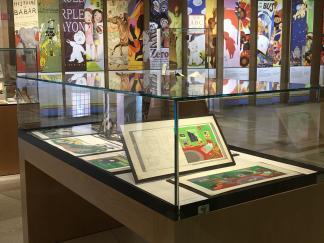
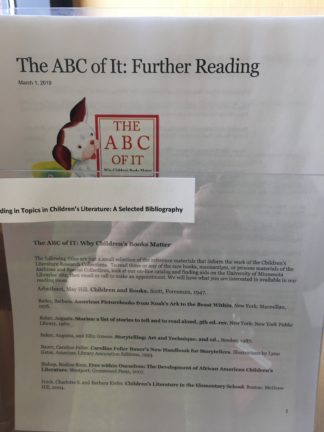
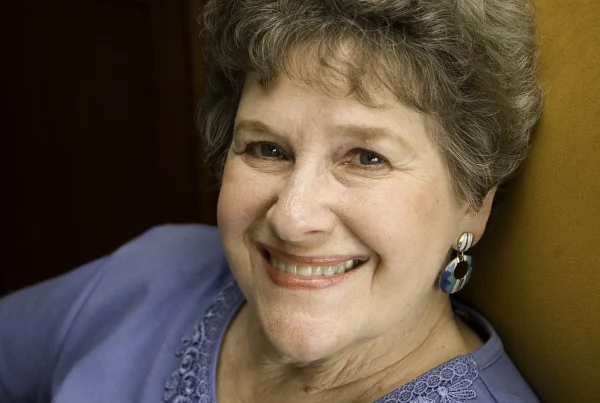
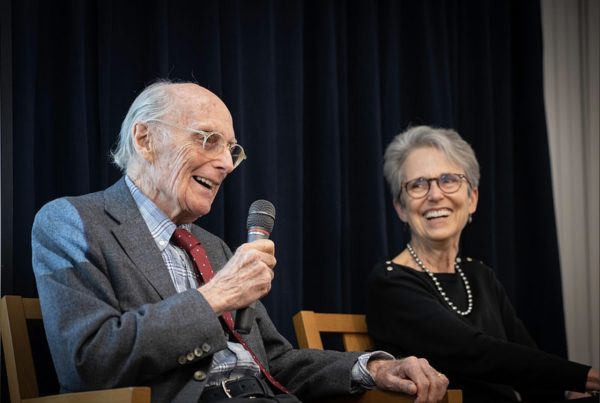
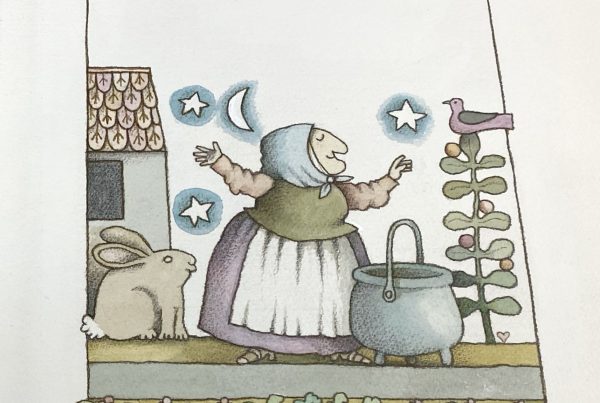

Glad that you mentioned the ““Further Readings in Topics in Children’s Literature Bibliography” provides suggested readings to think critically about children’s books and racism, sexism, ableism, and dominant white culture.”
As an institution works to educate the public about children’s literature, I hope that you’ll include a post about how and why the bibliography came to be and why it is imperative to explicitly consider why we need to be critical about what isn’t included in the exhibit. Sharing the different voices who contributed to the bibliography as well as perspectives of scholars and authors of color is a big part of children’s literature in current climate.
See the sections: Things to Think About.